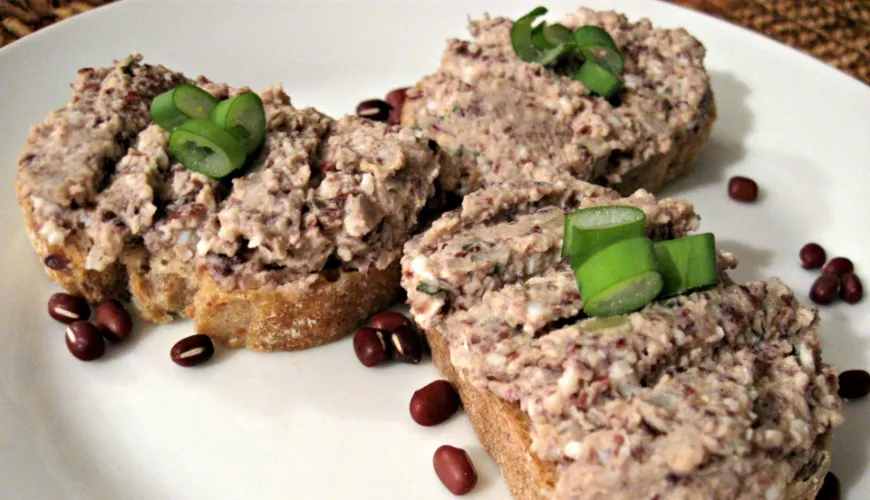
The miracle protein collagen helps the body in many ways

What is collagen?
Collagen is a key building block of our body and its role extends far beyond aesthetics. In our article, you will learn everything you need to know about collagen, its benefits for health and beauty, how you can replenish your body's collagen stores and the myths that exist about collagen.
Collagen is an essential protein that is found in the bodies of all animals, not including humans. It makes up to a third of all proteins in the human body and is a key component of many biological structures and processes. Its primary function is to provide strength and structure to skin, bones, tendons, cartilage and many other body tissues. It is also a building block of our joints, muscles, hair and nails. There are up to 28 types of collagen, but types I through V are the most common in the body, each with a different function.
There are several types of collagen in the human body, with types I, II, III, IV and V being the most common. Each type has specific functions:
Type I: The most abundant type in the body, it is found in tendons, skin, bones and other tissues. Type II: The main component of cartilage. Type III: Supports the structure of muscles, organs and blood vessels. Type IV: Found in basement membranes, the layers separating different body structures. Type V: Involved in the formation of cell surfaces and hair fibers.
Health Benefits of Collagen
Collagen helps keep our skin supple and youthful, supports joint and bone health, and is also essential for maintaining the strength of our hair and nails. However, its effects go much further than that, helping, for example, to treat intestinal disorders and increase a person's overall vitality.
As we age, the natural production of collagen slows down, which leads to a weakening of the skin's strength and elasticity, resulting in wrinkles and other signs of aging, for example. This process can be accelerated by the environment, such as excessive sun exposure or smoking. A healthy lifestyle and balanced diet can help slow the breakdown of collagen and promote its regeneration.
Natural sources of collagen
The largest natural sources of collagen in food usually come from animal products, as collagen is a protein found in animal tissues. Here is a list of some of the richest sources of collagen:
Bone broth is made by boiling bones from beef, chicken or fish for a long time. This process draws collagen and other nutrients into the broth, making it a rich source of easily absorbed collagen. The collagen in the broth is present in the form of amino acids, which are important for the health of the skin, joints and other connective tissues in the body.
Marinated meats, especially meats with a high connective tissue content such as beef ribs, neck or knees, contain large amounts of collagen. This collagen is broken down during cooking into amino acids that can be easily absorbed by the body and used to regenerate connective tissues.
Fish and seafood such as salmon, tuna, shrimp and mussels are rich sources of collagen, especially in the skin. Collagen from these sources is important for maintaining the elasticity and firmness of the skin, as well as supporting joint and bone health.
Gelatin is a processed product of collagen and is made by cooking the bones and skin of animals. Gelatin is used in many desserts and dishes as a thickening agent, which adds collagen to the diet and can contribute to the health of skin, joints and other connective tissues.
Egg whites, while they do not contain collagen, are rich in amino acids that are essential for collagen formation in the body. These amino acids contribute to the regeneration and maintenance of connective tissues, which promotes overall health and vitality.
Chicken, especially chicken skin and connective tissue-rich parts such as the neck or legs, are good sources of collagen. This collagen is important for promoting the health of skin, joints and other connective tissues, which contributes to overall well-being.
Pork, like beef and chicken, is a good source of collagen, especially in the skin and connective tissues. Collagen from pork supports the health of the skin, joints and other connective tissues, which is important for maintaining the overall vitality of the body.
Collagen and vegetarian and vegan diets
Although collagen is primarily present in animal products, there are ways to boost its production in the bodies of those who eat a strictly plant-based diet. Consumption of foods rich in vitamin C (such as citrus fruits, peppers, kiwifruit), zinc (such as seeds, nuts) and copper (such as legumes, whole grain products) can help the body produce collagen more efficiently.
Dietary supplements with collagen
When the diet doesn't offer enough collagen, or when the natural production of this important protein decreases with age, many people turn to dietary supplements. These supplements offer a concentrated source of collagen that can help replenish levels in the body and support the health of skin, joints, bones and other tissues. Here is basic information you should know when choosing and taking collagen supplements:
Types of collagen supplements
- Hydrolyzed collagen (collagen peptide) - This type of collagen has been enzymatically broken down into smaller peptides, making it easier to absorb in the digestive tract. It is the most common form of collagen supplements and is known for its high bioavailability.
- Collagen in tablet or capsule form - This form is easy to use but may contain less collagen per dose compared to powdered forms.
- Collagen Powder - Can be easily added to foods and beverages such as smoothies, coffee or oatmeal, and typically contains a higher amount of collagen per serving.
Anti-aging collagen for healthy joints
In cosmetics, collagen is often presented as a miracle anti-aging agent. Indeed, regular use of collagen products can visibly improve skin condition, increase skin elasticity and reduce wrinkles. The most common beauty products are creams with collagen, masks and serums.
Collagen is also essential for joint health as it contributes to joint strength and flexibility by helping to maintain the integrity of cartilage, which reduces friction between bones. Supplements with collagen can be particularly beneficial for people suffering from osteoarthritis, as regular use of collagen supplements can help reduce joint pain and improve joint functionality. Due to its anti-inflammatory properties, collagen can also contribute to the general health of joints and support their long-term vitality.
Further information on using collagen
How quickly can I see results?Improvements can be seen after just a few weeks of regular use.
Is there a difference in collagen products?There are many myths, such as that collagen supplements are useless or that all sources of collagen are the same. However, scientific studies show that properly chosen supplements can help significantly.
Adverse effects and safetyCollagen supplements are generally considered safe, but may cause allergic reactions or digestive problems in some people. It is always important to consult your doctor when taking supplements.
Do you have enough collagen?Collagen is extremely important for our health and beauty. Sufficient levels of collagen in the body can have a positive effect on the overall quality of life. Remember, however, that every body is unique, and what works for one may not work for another. You can also find selected collagen products in our e-shop.

